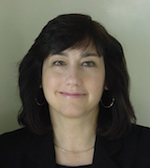
It was the late, great Art Linkletter who coined the phrase, Kids Say the Darndest Things to describe the uncensored and often very funny comments that fly out of kids’ mouths. Well, I’d like to borrow those famous words and edit them ever so slightly to read, People Say the Darndest Things to Cancer Survivors.
Why? Because they do. Constantly.
If you spend any time at all in CancerLand, you know exactly what I’m talking about.
Words can be hurtful. Especially when you are in treatment, not looking or feeling like yourself. That’s when these encounters seem to happen – when you least expect it and are neither well prepared (nor quite frankly, in the mood), to handle a verbal assault with any tact.
Maybe it’s a relative who cross-examines you for details about your tumor, ultimately asking the painful question,”all that time, didn’t you feel it?” (How about a nice dose of blame to make your day?)
Or a colleague – like the woman who checked out my bustline before my scheduled mastectomy with a quick look down, then left to right, before uttering these memorable words: well, it’s a real blessing that you’re so small, isn’t it? As if the size of a body part has any relationship whatsoever to how traumatic it is to have it surgically removed.
Possibly a neighbor spots you outside on a warm day wearing only a baseball cap to cover your newly bald head, and walks up to boldly ask, What kind of cancer do you have? What kind of chemotherapy are you on?
Yikes! I can’t make this stuff up.
What do you say when the angry words, actually it’s none of your business are on the tip of your tongue? Especially when the conversation suddenly veers sharply, with a quick reference to God’s will, before ending with a discussion of the statistical probability of anyone not currently being treated for cancer being hit by a bus.
Maybe I have to stop and reflect for a minute:
Was I guilty of this sort of rudeness before I was diagnosed and knew any better?
(Possibly…)
Is there anything cancer survivors can say or do to protect themselves?
(Absolutely…)
After a few painful cancer-related conversations with various members of the healthy world, I learned to interrupt when I sensed things starting to go badly. Then I said the following words: Not helpful. What you’ve just said is not helpful. At that point, I just walked away. Conversation over.
You know what? More often that not, it worked like a charm.
Now please read on to learn how fellow cancer survivor Joni Rodgers responded to similar situations with grace and more than a little sense of humor.
Excerpted from:
Bald in the Land of Big Hair by Joni Rodgers
(NY: Harper Collins, 2001)
Luckily, everyone with cancer is issued a Brave Sick Person Face. It comes with the wig. If your prognosis is really bad, you may even be upgraded to Saint Sick Person. It comes in handy, because the moment you’re diagnosed with cancer, you become a platitude magnet. It’s the truth. Cancer attracts proverbs like pocket lint on a Lifesaver. Pastel Precious Moments posters, plaques, and coffee mugs gather at your door like a gaggle of bug-eyed orphans. Aphorisms come flying from every direction.
People I hardly knew came up to me, saying stuff like,”The Lord never gives us more than we can bear” (although, in my experience, this seems to apply only to money and cleavage). Or”If you ask the Heavenly Father for bread, He will not give you a stone.” (Perhaps the problem here is that God is thinking of the banana bread I bake, which could easily be mistaken for stone). Or”You’re an inspiration to us all.” (I knew I must be looking really bad whenever somebody laid that one on me). And then there’s that lovely poem about footprints in the sand.
“So God tells him, “The places where there’s only one set of footprints – that’s where I carried you,'” someone would tell me, blinking back tears, and I would struggle to resist adding,”Yeah, and that big ol’ dent in the sand is where God dropped me on my freaking head!”
My personal favorite from The Big Book of Banality was – and feel free to sing along with me on this one – “That which does not kill us makes us stronger!” This is a little like saying that that which does not kill a seat cushion makes it a flotation device. But at least it gives us a Plan B to fall back on. After a while, I started getting this vision of searchlights, confetti, and the offstage announces saying,”Congratulations! You are the one millionth person to use that expression since Joni was diagnosed! What do we have for our winner, Don Pardo?
…Still, as the months wore on and my jaded exterior wore down, I was hungry for hope, craving for comfort. One day on television, I saw a little entertainment news blurb about the man who, as a boy, had played Peter Brady on The Brady Bunch and had recently been diagnosed with cancer. His TV siblings praised him for his positive attitude, and he boldly told the interviewer,”I got cancer, but cancer didn’t get me!”
I welled up and clutched the remote control to my heart. The first thing that came to my mind was,”I want to be like that. I want to be able to stand there with my dignity and my sense of humor intact and say cancer hasn’t gotten me.” The second thing that came to my mind was”Peter Brady is now my spiritual guru? How pathetic is that?”

I needed that giggle thanks. Me and my daughter had cancer at the same freakin time—Imagine the responsesI got to that one. As my response I have created a singalongacancer website . So far it has two songs but Feck Cancer and Foodie fight are on their way.
Today I wore a blue turpin to toddler group–no one said a word-That’s england for you-so next week I will try a wizard hat. It will give me focus during the summer holidays. Cheers
One of my friends found your book for me and I will get it and read it just from the positive notes that I have read here. I was diagnosed last July with ovarian cancer and we are making leaps and bounds going down this journey of killing this cancer. Positive attitudes cannot be turned off and on like a faucet but I play games with myself and doing and playacting positive really does make them happen. Besides, it is a great relief to just talk to someone that knows all the inns and outs that we go through with fighting cancer.